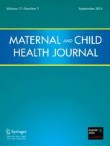|
Anapafseos 5 Agios Nikolaos 72100,Crete,Greece,00302841026182,00306932607174,alsfakia@gmail.com
Blog Archive
- ► 2022 (3010)
- ► 2021 (9899)
-
▼
2020
(4138)
-
▼
December
(1380)
-
▼
Dec 01
(85)
- Regulation and Ethics of Transcranial Electrical S...
- Brain Network Connectivity and the Choice Motor Re...
- Motor Commands for Planar Movements of the Upper L...
- Partial Inhibition of Na + /K + -ATPase and Plasma...
- Geospatial Virtual/Augmented Environment: Applicat...
- A Wireless Sensorized Insole Design for Spatio-Tem...
- Does Perceived Quality of Care Moderate Postpartum...
- Is effector visibility critical for performance as...
- Statistical regularities cause attentional suppres...
- Long term comparative evaluation of two types of a...
- Could we reduce adhesions to the intra-abdominal m...
- Induction of amyloid-β deposits from serially tran...
- Dose Adjustment of Quetiapine and Aripiprazole for...
- Effect of manual aspiration thrombectomy using lar...
- Erenumab efficacy in highly resistant chronic migr...
- Efficacy of erenumab 70 mg in chronic migraine: Vi...
- Conversion from a failed proximal femoral nail ant...
- Fibronectin/thermo-responsive polymer scaffold as ...
- Coaction of TGF-β1 and CDMP1 in BMSCs-induced lary...
- Risk factors for cement leakage and nomogram for p...
- Reliability of tibiofemoral contact area and centr...
- Orofaciodigital syndrome type II (Mohr syndrome
- Effects of a movement control and tactile acuity t...
- Early surgery for ruptured intracranial aneurysms ...
- Postoperative Pain Management in Lower Limb Surger...
- Epidural Blood Patch for the Management of Post Du...
- Photodynamic Therapy Targeting RAS mRNA with GQuad...
- TP53 and PTEN Mutations were shared in Concurrent ...
- Evaluation of Opioid Overdose Reports in Patients ...
- The Role of Children’s Dietary Pattern and Physica...
- Prenatal alcohol exposure is a leading cause of in...
- Oligodendrocyte myelin glycoprotein as a novel tar...
- Down syndrome cell adhesion molecule like-1 (DSCAM...
- Differential Effects of Fingolimod and Natalizumab...
- Investigation on Data Mining and Machine Learning ...
- Influence of exogenous and endogenous estrogen on ...
- Visual imagery influences attentional guidance dur...
- General Characteristics of Microbubble-Adenovirus ...
- Transitional nystagmus in a Bow Hunter’s Syndrome ...
- Enablers and Barriers to Identifying Children at R...
- In Silico Ventilation Within the Dose-Volume is Pr...
- Analyzing Liver Surface Indentation for In Vivo Re...
- Brain Strain: Computational Model-Based Metrics fo...
- The Dysregulation of OGT/OGA Cycle Mediates Tau an...
- Discovery of Isoform p53 Protein in Failed Cases o...
- Tumor stiffness measured by shear wave elastograph...
- Evaluating the Tubridge™ flow diverter for large c...
- Έκθεση αξιολόγησης του πρωτοκόλλου PCR-RT Corman-D...
- Arteriovenous malformation in the pancreatic head ...
- A hypoenergetic diet with decreased protein intake...
- Epidemiology of pediatric femur fractures in child...
- Bioelectrical impedance analysis for perioperative...
- Use of an Alternative Pathway for Isoleucine Synth...
- Assessment of the Biotechnological Potential of Cy...
- New Recombinant Phytase from Kosakonia sacchari : ...
- Obtainment and Characteristics of Phytoecdysteroid...
- Effect of Virus-Inactivating Agents on the Immunog...
- Prospects for the Use of Methylotrophic Yeast in t...
- Efficiency of Microbial Preparations Based on Baci...
- Glutamyl- and Glutaminyl-tRNA Synthetases Are a Pr...
- Bioaugmentation of Nitrifying Microorganisms to In...
- Laminin 521 Modulates the Сytotoxic Effect of 5-Fl...
- Expression of the NADPH + -Dependent Formate-Dehyd...
- In Vitro System for the Detection of Prostate Canc...
- Inactivation of Yarrowia lipolytica YlACL2 gene Co...
- Study of the Potential of the Reversal of the Fatt...
- Construction of Recombinant Producers of Enzyme Pr...
- Effects of Fibroblast Growth Factor-2 and Other Mi...
- Transcriptome Analysis of Signaling Pathways in Ca...
- Properties and Biotechnological Application of Mut...
- Clusterin ameliorates tau pathology in vivo by inh...
- Cerebral organoids: emerging ex vivo humanoid mode...
- Successful conversion surgery of distal pancreatec...
- Beta- and Novel Delta-Coronaviruses
- Outcomes of tissue reconstruction in distal lower ...
- Prevalence and predictors of work-related musculos...
- Higher aggrecan 1-F21 epitope concentration in syn...
- Hybrid-Therapie eines Dysphagia-lusoria-Rezidives ...
- Besteht ein Zusammenhang zwischen der peripheren a...
- Infektionen in der Shuntchirurgie
- Gefäßmedizin in der ägyptischen Antike
- EUS is accurate in characterizing pancreatic cysti...
- Myocardial Perfusion Simulation for Coronary Arter...
- Adalimumab Biosimilars in the Treatment of Rheumat...
- Autotransplanted teeth including an evaluation of ...
-
▼
Dec 01
(85)
-
▼
December
(1380)
- ► 2019 (2429)
Αλέξανδρος Γ. Σφακιανάκης
Tuesday, December 1, 2020
Does Perceived Quality of Care Moderate Postpartum Depression? A Secondary Analysis of a Two-Stage Survey
Subscribe to:
Post Comments (Atom)



No comments:
Post a Comment